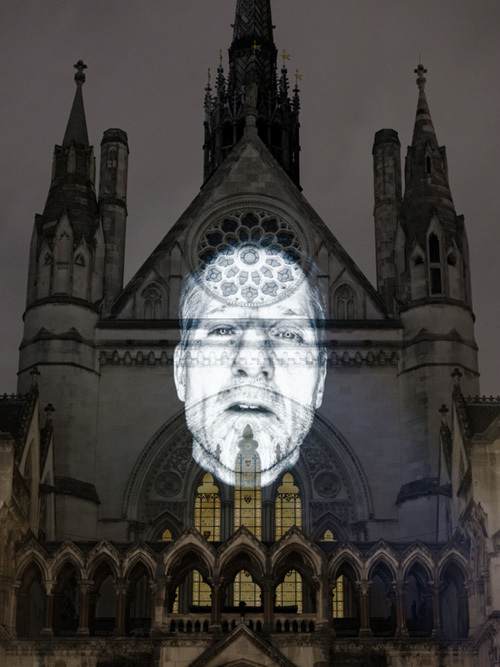- Winter 2023
- Climate Change and the Cab Rank Rule

Observance of the cab rank rule has been described as essential to the availability of justice according to law, ensuring access to legal representation regardless of counsel’s predilections as to the acceptability of the cause or the munificence of the client.1 The application of this principle has recently been tested in the United Kingdom by a group of prominent lawyers declaring that they would not, on conscientious grounds, provide legal services in support of certain causes that could exacerbate climate change.
In December 2022, a group calling themselves Lawyers Are Responsible, drafted a ‘Declaration of Conscience‘ that acknowledged the profound consequences of the failure to keep global warming within the 1.5⁰C limit established by the Paris Agreement on Climate Change and committed its signatories to a series of proactive steps to seek to address the climate emergency. By March 2023, the Declaration had 120 signatories from within the legal profession, including eighteen barristers and six King’s Counsel.
The Declaration has attracted significant public attention within the United Kingdom and abroad, primarily because of the following commitment:
WE DECLARE, IN ACCORDANCE WITH OUR CONSCIENCES, THAT WE WILL WITHHOLD OUR SERVICES IN RESPECT OF:
(i) supporting fossil fuel projects; and
(ii) action against climate protesters exercising their democratic right of peaceful protest.2
This did not pose a significant ethical issue for the solicitors who signed up to it. The United Kingdom Law Society has since issued guidance that recognises that solicitors are not obliged to provide advice to every prospective client and confirms that ‘climate-related issues may be valid considerations in determining whether to act’.3
The barrister signatories faced a more acute problem. Under the Barristers Standards Board Handbook, they were subject to the cab rank rule and were therefore required, subject to limited exceptions, to accept instructions irrespective of the identity of the client, the nature of the case, or any belief or opinion as to the character or reputation of the client.4 Equivalent requirements, of course, apply to barristers in New South Wales pursuant to rules 17 and 105 of the Legal Profession Uniform Conduct (Barristers) Rules 2015.
This was not lost on the barristers who signed the declaration. They recognised that there was a real risk the Bar Standards Board would treat the declaration quoted above as professional misconduct, and accordingly self-referred to the disciplinary body.5 The Bar Standards Board has now cleared those barristers of breaching professional rules while suggesting the matter might be reconsidered in the scenario that one of the signatories was to receive a relevant instruction and turn it down.
In the meantime, the Declaration has provoked debate about the ambit of the ‘cab rank’ rule within the legal profession and the Bar Council of England and Wales. The Chair of the Bar Council has publicly expressed his views about the importance of the rule and that ‘[i]t is for judges or juries to decide who is right and who is wrong, not barristers.’6 On the other hand, the Chair of the Bar Council’s Ethics Committee has reportedly suggested at a recent Bar Council meeting that another rule allowing a barrister to refuse to accept an instruction where ‘there is a real prospect that you are not going to be able to maintain your independence’ could operate as a ‘safety valve’, allowing those genuinely afflicted by conscience to refuse a brief.7 It should be noted that there is no direct equivalent to this rule in the New South Wales Bar Rules.
Undoubtedly many members of the Australian legal profession, and the New South Wales Bar in particular, feel equally passionate about averting the growing climate emergency. It can be expected that similar debates about the intersection of conscience and ethics will soon arise locally. Healthy debate on these topics is to be encouraged. It promotes better understanding of the seriousness of climate change and, by causing the Bar to articulate and defend its ethical principles, only serves to strengthen the public understanding of the Bar’s role and function in the Australian legal system. BN

ENDNOTES
1 Giannarelli v Wraith (1988) 165 CLR 543 at 580 (Brennan J).
2 https://www.lar.earth/sign/.
3 The Law Society, ‘The impact of climate change on solicitors’, Section 4.3: https://www.lawsociety.org.uk/topics/climate-change/impact-of-climate-change-on-solicitors.
4 Barristers Standard Board Handbook, Rule rC29 and rC30.
5 ‘Top lawyers defy bar to declare they will not prosecute peaceful climate protesters’, The Guardian (24 March 2023) https://www.theguardian.com/environment/2023/mar/24/top-lawyers-defy-bar-declare-will-not-prosecute-peaceful-climate-protesters.
6 ‘Top lawyers defy bar to declare they will not prosecute peaceful climate protesters’, The Guardian (24 March 2023) https://www.theguardian.com/environment/2023/mar/24/top-lawyers-defy-bar-declare-will-not-prosecute-peaceful-climate-protesters.
7 ‘Lawyers can refuse to prosecute eco-activists amid climate change concerns, according to professional standards bodies’, The Daily Mail (27 April 2023): https://www.dailymail.co.uk/news/article-12018121/Lawyers-refuse-prosecute-eco-activists-amid-climate-change-concerns.html.
